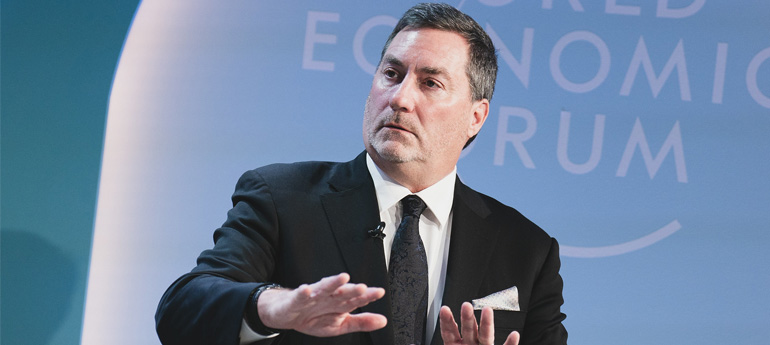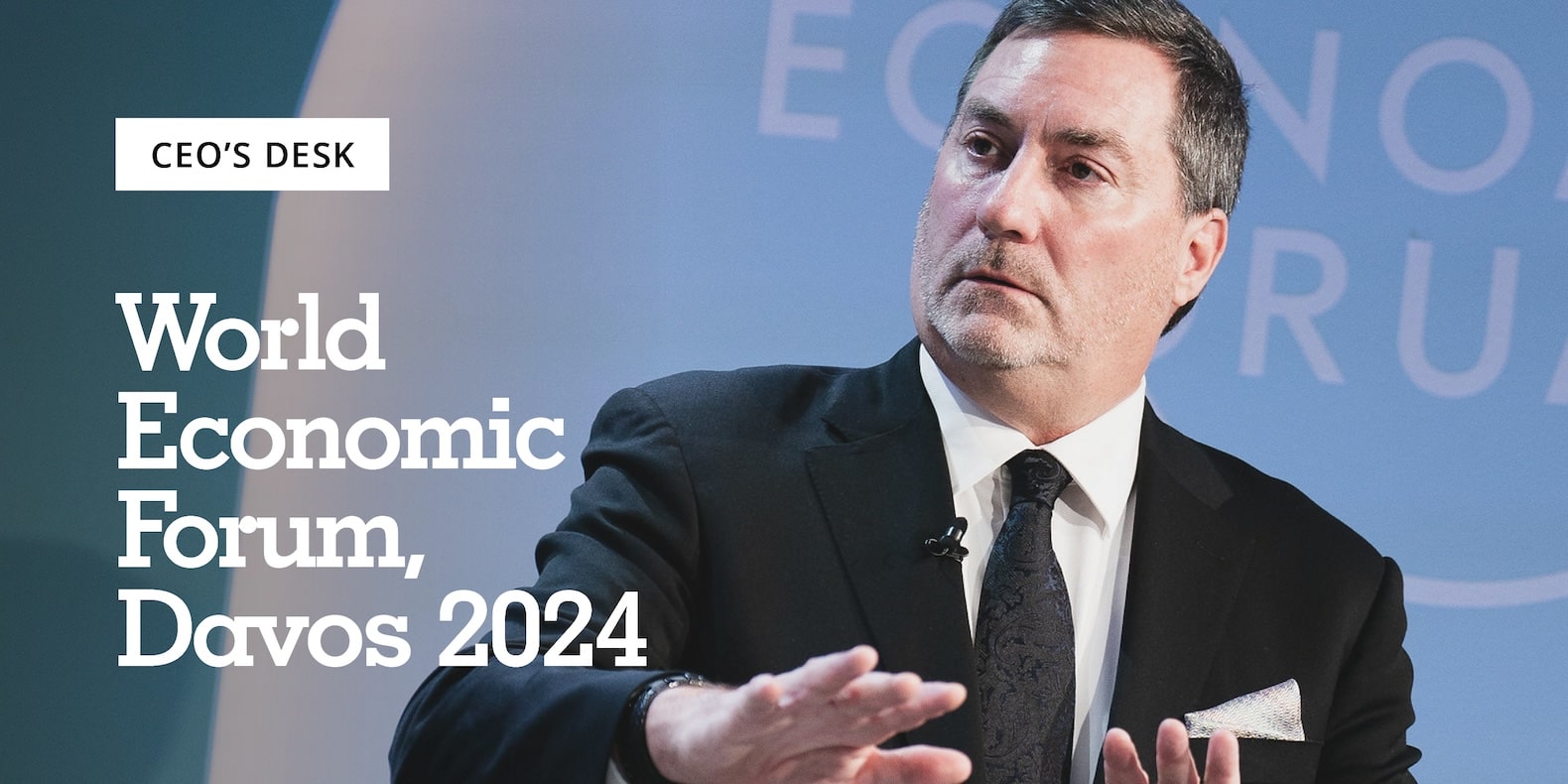World Economic Forum, Davos 2024: Key Insights for the Commercial Real Estate Industry


Last week, I was in Davos for the World Economic Forum’s Annual Meeting, where the focus was on global leaders coming together to rebuild trust, generate new ideas, and create partnerships to advance solutions for the challenges we face. Between testing out evolving virtual reality capabilities in the WEF Collaboration Village and discussing the next international space station, I was once again amazed and inspired by innovators around the world helping enable a better future.
For the commercial real estate industry, many of the key topics of conversation at WEF – from responsible AI to better public-private partnerships to place-based innovation – will be core trends that drive our industry forward in the coming years.
Commercial real estate needs to embrace artificial intelligence – quickly
To no one’s surprise, a key focus of this year’s forum was AI. Leaders around the world are grappling with how to adopt AI and, more directly, how businesses can leverage this technology to derive real value and returns. Justifying significant capital investment in something unknown has always been a challenge when exploring new technologies.
While the fear of AI privacy and data ownership is a concern, this is outweighed by its promises. For the commercial real estate industry, rapidly evolving technologies such as honing business development targets, collecting and improving data, advancing predictive analytics, and building digital twins, are poised to be a growing part of our future toolkit and revolutionize how we go to market and design, develop, and manage our buildings and infrastructure.
Our approach at AY is centered on smart adoption and providing our clients with real, tangible outcomes. This means responsibly advancing our investment in AI technologies that offer new capabilities core to our services. For example, we’ve built a proprietary AI model to transform location intelligence for healthcare providers to strategically locate key services, talent, and facilities.
PPPs are the path to progress
In speaking with real estate leaders, government officials, and advocates throughout the week, there was one thing we all agreed on: public-private partnerships unlock solutions that are not possible otherwise. To bring about the tangible change we need – and for our communities to reach their potential – there must be partnership and alignment between the CRE industry, public stakeholders, and local communities.
The public sector is facing tremendous challenges, from revenue sources to infrastructure and the lack of attainable housing, that demand unprecedented vision and commitment to navigate. The commercial real estate industry is creative and eager to partner, and we are fueled by a shared desire for thriving, prosperous places for all.
Discussions at WEF around zoning, safety and security, sensible density, creative funding, and barrier reduction on responsible development stand out as ways effective partnerships will spark much-needed progress.

Social impact and returns go hand-in-hand
This year’s annual meeting reaffirmed my belief that thriving places and social impact are connected – and together drive financial returns. As an industry, we have a real opportunity and responsibility to focus on meaningful change; to create sustainable cities, healthy places, and equitable communities that support our social, economic, and environmental wellbeing.
2024 is set to be a turning point in the real estate industry as investors position themselves for improving economic conditions in the second half of the year. As we look toward growth, we have the opportunity to do it in an impactful way: delivering value to clients through traditional services and brokerage as well as incentivizing housing solutions like adaptive reuse projects (office conversions), sensible density around transit, and accessory dwelling units that meaningfully address needs rightsized for specific communities. Beyond housing, we find our cities facing a future shaped by climate resilience, efficient use of natural resources, and the infrastructure needed for vibrant, healthy communities.
To step toward these challenges, Avison Young is honored to lead WEF’s newly launched Social Value Taskforce, which will examine the challenges of PPPs in creating social value through urban regeneration projects. Over the next six months, the taskforce will work with partners from the private and public sectors, such as developers and local governments including CreateTO, the City of Boston, PwC, and UN Habitat, to identify the resources and guidance needed for effective urban placemaking.
The tools that emerge from the taskforce will inform city leaders and partners for many years to come. AY is deeply committed to helping provide these resources to global partners as we work with governments around the world to shape urban spaces for the future.
For more insights, you can read my guest blog post with WEF on housing affordability and watch my panel discussion, Yes In My Backyard.
